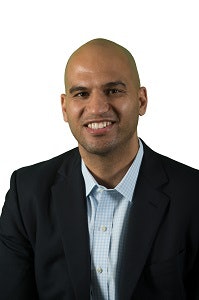Over the past 20 years there has been a seismic shift in higher education toward entrepreneurship and innovation fueled by student interest, alumni support and market forces. Through the establishment of incubators and centers for entrepreneurship, colleges have made sizable financial commitments to maximize the research, ideas and talent associated with their institution and community.
Initiatives designed to support students’ interest in solving global problems through entrepreneurship abound: startup internships, mentoring, seed funding, professional workshops and the like are becoming increasingly common in the liberal arts context. Twenty of the Top 50 liberal arts schools have some variant of a dedicated director-level position to support innovation and entrepreneurship on campus. While students are undoubtedly motivated to participate by the prospect of starting the next Warby Parker, colleges have embraced the pedagogical value of entrepreneurship as a skillset applicable across professional domains.
Students’ participation builds valuable human/social capital, extended professional networks and send a powerful market signal to employers that they have the skills and interests increasingly demanded in our hyper competitive world. As such, these centers are becoming important arbiters of campus opportunities that support mobility, self-agency and proxies for hard to measure qualities, such curiosity and ambition.
Which begs the important questions: who is taking advantage of them and why?
At Lafayette we measure both expressed interest, like signing up for center communications, and active engagement, like showing up for events. In the former, all racial groups are proportionately represented, (with the exception of international students who are slightly overrepresented) suggesting all students recognize the value of this programming. But in that latter group we see significant underrepresentation by Black and Hispanic American students, which is consistent with empirical evidence of a racial gap in extracurricular participation.
 Yusuf Dahl
Yusuf DahlIn follow-up interviews to understand the disconnect, we hear a consistent theme of time constraints due to classes, work or other obligations.
Like many other selective liberal arts colleges, we’ve worked to increase our socioeconomic diversity and admit larger numbers of first-generation students. Hardworking, talented and resilient, these students are often less prepared for the academic rigor than their affluent peers and have less financial and social capital at their disposal to navigate an elite liberal arts terrain. Because these students work harder to catch up academically and work longer hours for spending money, entrepreneurship centers become the college version of traveling soccer leagues — pay to play programs inhabited by children from upper middle-class backgrounds.
There are three ways colleges can combat the perpetuation of disadvantage and make their entrepreneurship centers more inclusive.
First, entrepreneurship centers should integrate their co-curricular initiatives with credit bearing courses as much as possible. At Lafayette, we expend significant effort explicitly connecting our co-curricular programming to course learning objectives and in an effort to gain faculty support and foster course integration.
For example, we held a real estate investment analysis competition with the objective of familiarizing students with pro formas and methods of financial valuations, critical skills need in variety of professions. We based the case on an actual planned college dormitory project to make it meaningful to our community. We then partnered with faculty to introduce numerous elements to make the case truly interdisciplinary. How does pursuing LEED certification impact project feasibility, what strategies are needed to engage the community to support a zoning variance, and how does the rents charged to students support the college’s affordability initiative were just a few of the broader themes integrated into the analysis.
This effort was necessary because the stakes were high. Not only was there a sizable cash prize for the winner, but teams were judged by successful industries professionals (including a college trustee) who stayed around afterwards for a networking night, where internships were offered on the spot.
Second, participation demographics should be tracked and measured. If we don’t know who we are serving, it’s impossible to tell who is being left out. Results should be discussed within and between institutions and best practices for addressing them shared. These discussions should not be limited exclusively to student participation but should also include conversations around diversity at the leadership level. Currently only two of the Top 20 liberal arts entrepreneurship directors are Black or Hispanic and the numbers are even more dismal when you consider other center staff members.
Third, the entire campus community must mobilize to address this issue. Center directors need to proactively build relationships with administrators and faculty to build awareness and support. Far too many campus community members dismiss entrepreneurship/innovation as professional development or a variant of business, rather than a critical skill needed to be competitive in our economy. When combined with other liberal arts disciplines entrepreneurship centers help increase the creative impact of our students and enrich our campus communities.
The growth and importance of entrepreneurship in higher education isn’t slowing down anytime soon. The sooner we commit ourselves to ensuring equitable participation and access to these critical resources, the better positioned we will be to fulfill our mission in higher education to prepare all of our students to be the leaders and change agents our society increasingly needs.
Yusuf Dahl is the Bradbury Dyer Director of Innovation and Entrepreneurship at Lafayette College in Easton, Pennsylvania.















